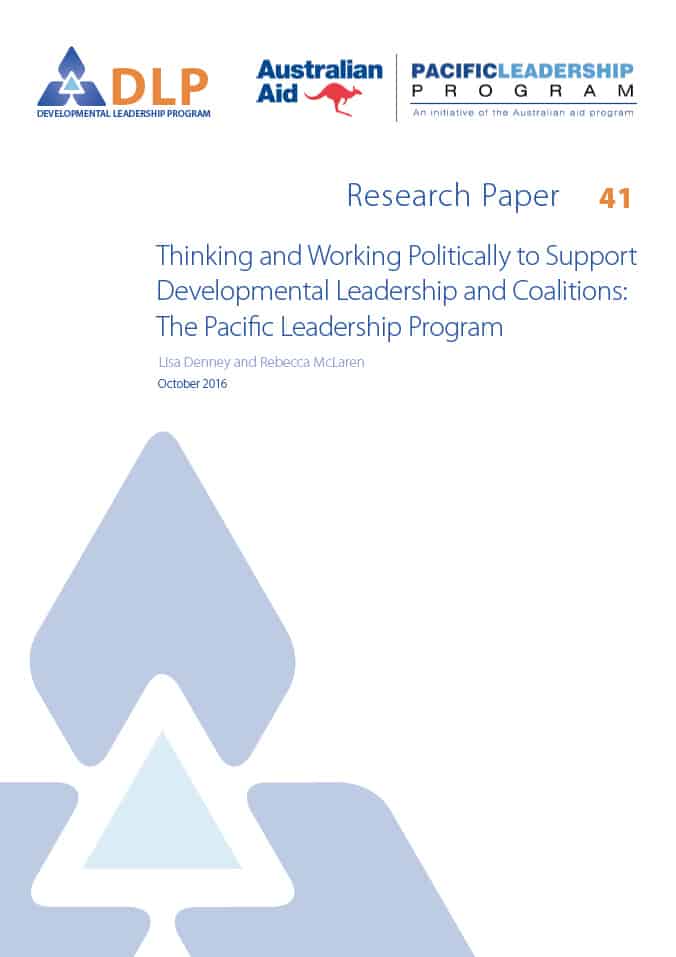This paper explores the experience of four reform coalitions supported by the Pacific Leadership Program (PLP) of the Australian Department of Foreign Affairs and Trade (DFAT) and what this tells us about supporting developmental leadership and thinking and working politically in the Pacific.
PLP’s experience demonstrates that thinking and working politically in support of developmental change is feasible, although to what extent is profoundly shaped by the wider donor environment. It suggests the following lessons:
- Donors need to be pragmatic when choosing developmental leaders to support. This involves engaging with leaders and coalitions that have the interest, power and ability to influence change, not necessarily those that adhere to ‘good governance’ principles.
- Leaders do not need formal authority to be effective. PLP-supported coalitions show leaders may emerge from both the formal and informal spheres. In addition, leaders can wield both ‘hard’ and ‘soft’ power, and the latter is especially important to consider when looking to work with women leaders in the Pacific.
- Coalitions can emerge organically or be proactively nurtured. What appears to be important is that the reform is genuinely locally led by either the already existing or brokered coalition and that donors are not seen as using local actors for their own agenda.
- Coalitions do not necessarily have to be inclusive to be effective. However, exclusive processes may not be able to achieve broader attitudinal changes that support implementation of policy or legislative reforms.
- Coalition membership does not need to be fixed or formalised to be effective.
- Coalition membership need not be equal. Coalitions need members to fulfil a range of functions and some may be required more than others.
- It is not always necessary for people to know they are part of a coalition. As long as there is a central leader (or leadership group) coordinating or prompting the inputs of others towards achieving the coalition’s objectives, it might not be possible or desirable for all coalition members to be brought together.









